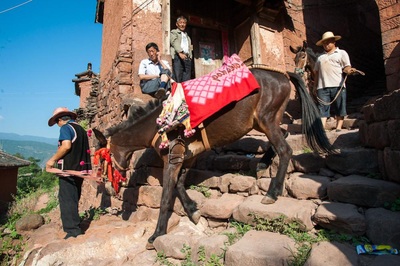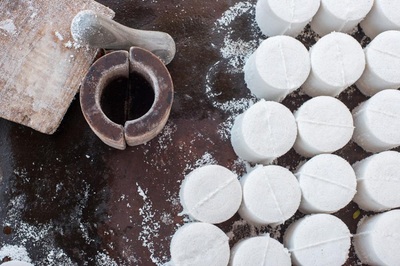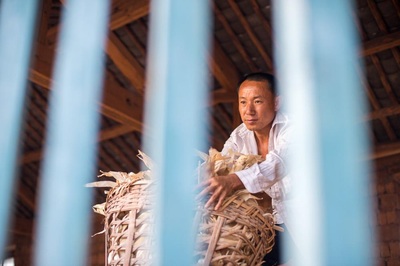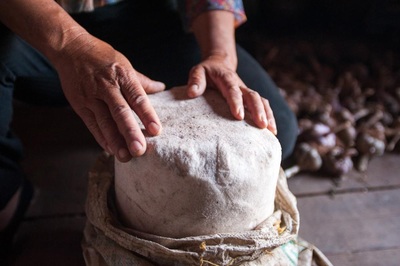Nuodeng, China - This village, perched on steep slopes overlooking a valley in China's Yunnan Province, is a slice of ancient times. As far back as the Han Dynasty more than 2,000 years ago, the village's plentiful reserves of potassium-rich salt were mined from salt wells and traded throughout southern Asia.
Salt, a rare and precious commodity, was essential for food preservation and led to Nuodeng being known as the richest village in China. Nuodeng salt was carried by horse caravan as far as India along the Tea Horse Road, which was also known as the Southern Silk Road. This vital trade route stretched from China's Sichuan Province to Tibet, India and Burma. Mules and donkeys are still used today by residents to transport heavy loads from Nuodeng, much of which remains inaccessible to motor vehicles.
Centuries of prosperity for the village came to an end when China's salt industry was nationalised upon Mao Zedong's rise to power in 1949. Nevertheless, descendants of the Huang salt merchant family continue to extract salt from brine by boiling it over huge wood-fired cauldrons. Along with tourism and salt-cured Nuodeng ham, salt is still a major source of income for the village.
http://www.aljazeera.com/indepth/inpictures/2013/12/pictures-china-village-salt-201312992532346178.html
Salt, a rare and precious commodity, was essential for food preservation and led to Nuodeng being known as the richest village in China. Nuodeng salt was carried by horse caravan as far as India along the Tea Horse Road, which was also known as the Southern Silk Road. This vital trade route stretched from China's Sichuan Province to Tibet, India and Burma. Mules and donkeys are still used today by residents to transport heavy loads from Nuodeng, much of which remains inaccessible to motor vehicles.
Centuries of prosperity for the village came to an end when China's salt industry was nationalised upon Mao Zedong's rise to power in 1949. Nevertheless, descendants of the Huang salt merchant family continue to extract salt from brine by boiling it over huge wood-fired cauldrons. Along with tourism and salt-cured Nuodeng ham, salt is still a major source of income for the village.
http://www.aljazeera.com/indepth/inpictures/2013/12/pictures-china-village-salt-201312992532346178.html










 RSS-канал
RSS-канал
